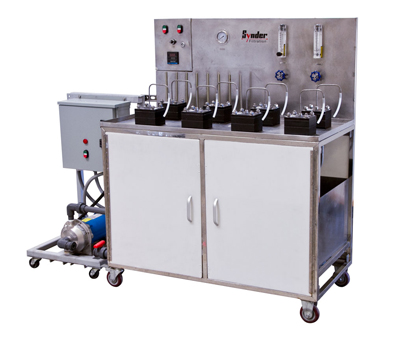Feasibility Tests
At Synder Filtration, we take pride in providing technical expertise and personal collaboration with our customers. With our newly designed research & development laboratory and fleet of pilot systems, we are able to conduct a wide range of feasibility tests both in-house and on-site. We strive to gain a better understanding of your process goals in order to develop a comprehensive testing plan designed to suit your separation needs. Our unique and collaborative application development program offers great flexibility for further development in specialty process applications.
1. Customer submits Pilot Study RFQ Form.
This helps us to gather important information about the feed stream, operating parameters, and the customer’s application goals.2. RFQ clarification.
Synder account manager schedules review meeting with the customer and the engineering staff to discuss the project and clarify any remaining questions.3. Feasibility testing.
A feasibility test is proposed to the customer, and conducted if approval is received. A feasibility report is prepared with 24-48 hours after test completion.- Flat sheet feasibility tests: Synder’s complete line of NF, UF, and MF and MAX membranes are available in a variety of different flat sheet options for feasibility testing.
- Spiral element feasibility tests: In some cases such as feed streams requiring high operating pressure to obtain additional concentration and flux data, spiral elements may be recommended for use on feasibility tests.
- Analytical capabilities include TOC levels, COD levels, hardness, chloride, sulfate, and iron concentrations, liquid viscosity, turbidity, pH, and conductivity measurements. Synder is also able to outsource other analytical instruments such as SEM, FTIR, BOD, TSS, and other ion measurements if the customer accepts 3rd party involvement in the testing.

